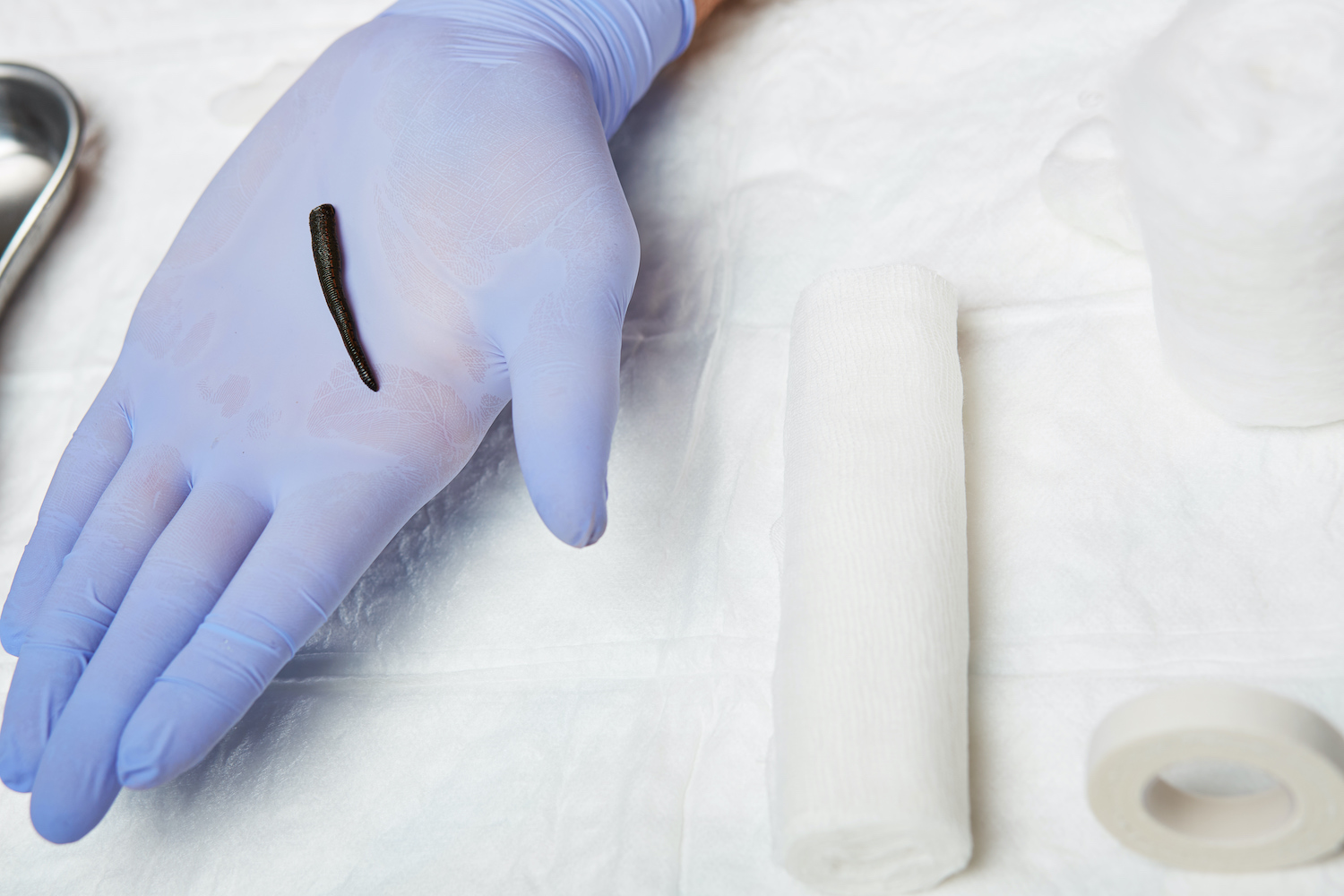Lymphedema is a common health problem that affects many people of all ages. It is characterized by the accumulation of lymphatic fluid in tissues, leading to unsightly but uncomfortable swelling of the body, mainly the legs. Although there are many therapeutic methods aimed at alleviating this condition, an alternative form of treatment – leech therapy or the use of medicinal leeches – is gaining increasing interest. Learn more about lymphedema itself and the mechanisms by which leeches act on this ailment.
What is lymphedema?
Lymphedema is a condition in which lymphatic fluid accumulates abnormally in the body’s tissues, resulting in localized swelling. To understand the essence of this condition, it is worth remembering that the lymphatic system plays a vital role in the human body. It drains bodily fluids, especially lymph, from tissues and transports nutrients, proteins, and lymphocytes – immune cells.
When the lymphatic system functions appropriately, fluid is evenly drained from the tissues. However, if there is a dysfunction in this system, lymphatic fluid can become trapped in the tissues, leading to lymphedema.
Lymphedema causes physical discomfort, can negatively affect the patient’s psyche, and can lead to complications such as skin ulcers or infections.
Lymphedema symptoms
Lymphedema is manifested by a series of characteristic symptoms that can significantly affect the comfort of the patient’s life. The key symptom is visible swelling of the affected body part, most often the lower limbs.
However, it’s essential to know that swelling in the case of lymphedema can also be accompanied by several other complaints. The most common include:
- a feeling of heaviness and tension in the affected area,
- pain or discomfort at the site of swelling,
- difficulties in moving,
- increased susceptibility to skin infections (ulcers, cellulitis),
- changes in skin texture (hardening, thickening).
Additionally, there may be difficulties in choosing clothes or shoes due to changes in limb circumference.
Lymphedema causes
The causes of lymphedema can vary depending on whether it is primary or secondary.
Primary lymphedema
Congenital changes cause this lymphedema, which may appear early in life, even in infants. Factors causing primary lymphedema may include infections or hormonal changes.
Secondary lymphedema
Secondary lymphedema develops in individuals who are not genetically predisposed and have never been ill. The cause in such cases may be:
- venous diseases,
- certain infections and inflammatory conditions,
- cancer,
- injuries and trauma,
- sports injuries,
- radiotherapy,
- surgical operations,
- chronic immobility,
- obesity.
How to treat lymphedema?
The treatment of lymphedema involves a wide range of therapeutic methods to reduce existing swelling and prevent its recurrence.
Among the most commonly recommended methods for lymphatic stasis are:
- compression – using notable bands or compression stockings can help reduce swelling by supporting lymphatic drainage,
- lymphatic massage – specialized massages can be an effective method to reduce swelling by stimulating lymph flow in the lymphatic system,
- pharmacotherapy – in some cases, medications for lymphedema, such as diuretics, are used to reduce body fluid levels and decrease swelling,
- movement and physical activity – regular physical activity, especially exercises that strengthen the muscles of the lower limbs, can improve lymph flow and reduce swelling,
Dietary changes: Reducing salt intake and eating high-calorie, processed foods can decrease fluid retention in the body, contributing to swelling reduction.
Leeches for lymphedema
Leeches also represent a potential therapeutic agent in the treatment of swelling. Their mechanism of action is based on their ability to secrete the special enzyme hirudin, which has anticoagulant properties. Thus, leech therapy can influence blood thinning and improve lymphatic circulation, which reduces swelling.
Additionally, substances produced by leeches and found in their saliva are attributed to anti-inflammatory, analgesic, and muscle-relaxing properties, which can also benefit lymphedema. Scientific studies suggest that leech therapy can effectively reduce swelling and alleviate symptoms, especially in cases where other therapeutic methods prove ineffective or insufficient.
However, certain limitations associated with leech therapy, such as the potential for an allergic reaction, mean the decision to use this method should be made after consulting a doctor.

